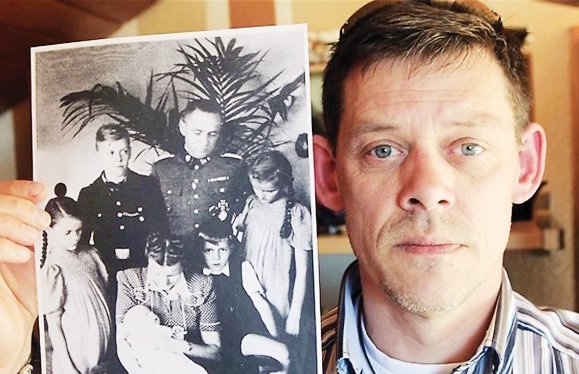
News

For children of Nazis, trauma is intergenerational
MIRAH LANGER
Psychiatrist Dr Michael Robertson explained that the process of doing this is psychologically one of “intellectual and emotional gymnastics”, from which a number of divergent coping strategies emerge.
Robertson, a clinical associate professor of mental health ethics at the University of Sydney and a visiting professorial fellow at the Sydney Jewish Museum, was speaking at the Johannesburg Holocaust & Genocide Centre in Forest Town this week.
He discussed various aspects of intergenerational trauma in a panel discussion following the screening of the documentary, Hitler’s Children, directed by Israeli filmmaker Chanoch Zeevi.
The film interviews a number of descendants of high-profile Nazi officers, exploring how they deal with their family history. Among those interviewed are relatives of top Nazi officials including those from the lineage of Rudolf Hess, Hermann Goering, Heinrich Himmler, Amon Goeth, and Hans Frank.
These descendants provide intimate details of how they have wrestled with the ghosts of their personal past. For one, it led to a decision to sterilise herself in order to “cut” her bloodline. Another chose to marry an Israeli Jew, but admitted that during arguments, they resorted to stereotyping each other. Many have written books. Some have cut ties with parts of their family, while others confess that they have been unable to shake off the love they felt as children for people whom they later came to learn were monsters.
Robertson elaborated on some of the psychological complexities that have emerged from research into the experience of these post-war generations.
“Initially, in speaking about the German post-war engagement with the criminality of the Nazi period, there was an inability as a collective to internalise and take ownership of the crimes perpetrated.”
As such, any process of atonement or mourning was thwarted, and denial became a characteristic in some of the families closely aligned with Nazi rule.
Another psychological hurdle that some of the descendants of perpetrators have faced is the sense that their grief doesn’t have the same legitimacy as that of the descendants of survivors, whose suffering is “known and endorsed”.
Therefore, for many of the perpetrators’ descendants, there is an “effacing of trauma” through a sense of shame.
Another common thread is concern about the inheritability of evil.
For some, “at some point, the descendant of the perpetrator fears that he or she is inhabited by an evil … The other direction of their psychological manoeuvres is that they come to fear their annihilation – that someone will come for them as belated retribution.”
Robertson said even those descendants who wanted to face the past frequently hit a “double wall” that prevented them from truly “engaging with the reality of their parents’ or grandparents’ crimes”.
If they are able to break out of the “first layer” of defensive manoeuvres against confronting their loved one’s crimes, a second layer remains.
This is “the tissue of lies that the families tell themselves. It comes up in all the narratives: the self-serving rationalisations, distortions of reality, and complete untruths.”
He said the cost of the family cover-up is that it denies descendants a sense of reality, and without this, any full processing of the past is curtailed.
Therefore, while for some of the descendants a way of coping with their past is to express empathy and identification with the victim, often in very public ways, there is a sense of “implausibility and inauthenticity” to these acts.
“There is a question of pseudo-empathy,” said Robertson, elaborating on this idea later in discussion with the SA Jewish Report.
“This is the idea that you act as if you have empathy,” he said, pointing out that many of the descendants who made a concerted effort to expressed their sorrow, did completely believe in the authenticity of their feelings.
“It’s almost like a pseudologia fantastica, which is essentially believing your own [self-deception].”
“They create this false self – a projection of what they want to be. They haven’t been able to internalise what has gone on [in their family past]. To do so would be to annihilatory to their psyche.”
Also involved in the discussion was holocaust centre director Tali Nates. Nates was speaking in her capacity as the daughter of a Holocaust survivor – her father. She was joined by the executive headmaster of St Martin’s School, Thomas Hagspihl, who offered comment in his capacity as the son of a German father who, as a child, had been a member of the Hitler Youth.
Nates said that the struggle of descendants of perpetrators was often painful and uncomfortable to witness. The challenge was to keep asserting a common humanity with these generations born after the war.
Hagspihl confessed that he continued to grapple with the ideology expressed by his loved ones. For example, he said his parents would often say that, having been German children during the war, they “had suffered just as much” as the direct victims of the Nazi regime.
In trying to delve into his past, Hagspihl said that what had been meaningful for him was being able to have “conversations” with others, like Nate, about these issues.
Ultimately, said Robertson, intergenerational trauma, for both sides, remains an ongoing process.
“It’s an endless process, and it doesn’t ever end, because your children inherit it, and your grandchildren.”




